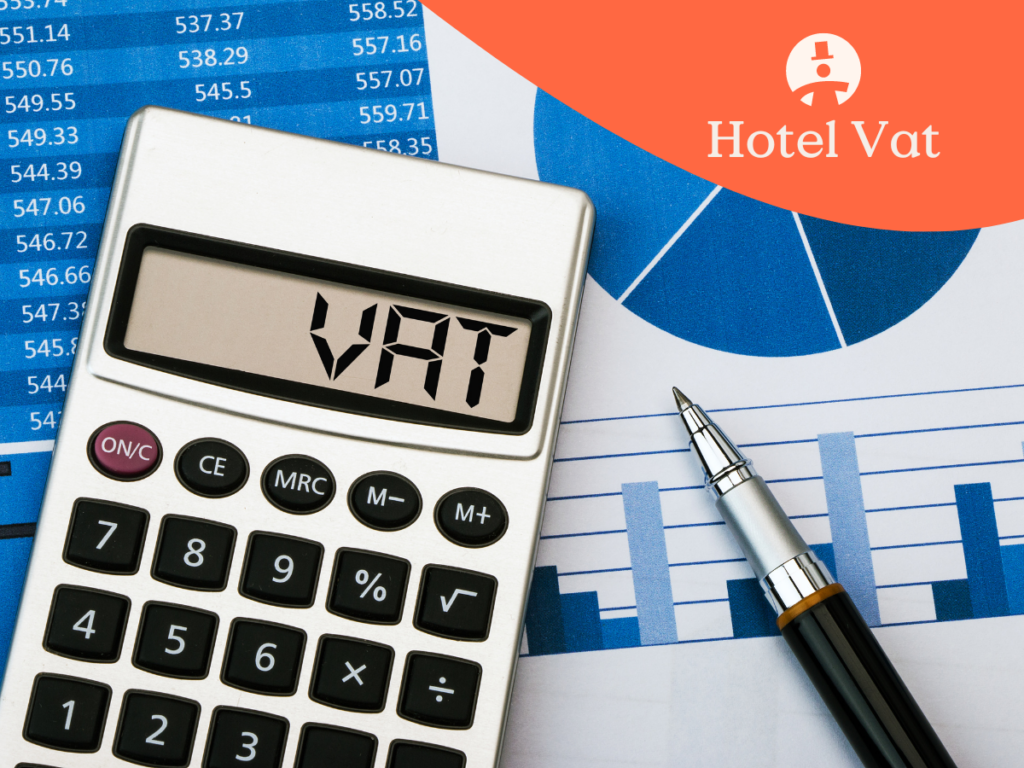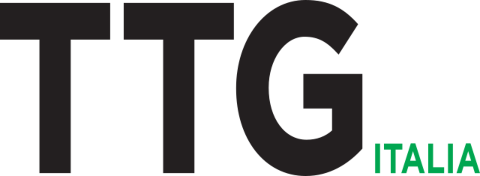
What is hotel VAT?
Hotel VAT is a specific form of ‘value added tax’ that is levied on the price a guest pays for hotel stays and services.
The rate and application of VAT on hotel rooms varies by country and even region. Most countries have a national VAT, but some either don’t or instead apply a slightly different tax to hotel purchases, such as goods and services tax (GST), sales and use tax (SUT), or simply ‘sales tax’.
Do you pay VAT on hotel rooms as a hotel owner? Yes and no. Hotel VAT is levied by the government and charged to the guest. The hotel forms the middleman, transferring VAT from guests to the government. VAT, GST and sale taxes therefore don’t really represent a hotel cost or a hotel fee in the traditional sense.
What does VAT mean when booking a hotel?
When you see ‘VAT’ on your booking confirmation, invoice or receipt, it will show the amount of money that is going to relevant government authority, whether local, regional or national. While the guest pays the hotel VAT, the hotel doesn’t keep it – it must pass the tax on to the government.
Indicating the percentage of VAT within a hotel purchase is a regulatory requirement in most countries. It can also help a hotel create an atmosphere of transparency and trust, by breaking down room rates into their constituent parts, to give guests a clear idea of what they’re paying and why they’re paying it.
Gain more control over hotel finances, payments and taxes
Little Hotelier is a tool built to simplify finances for small, independent hoteliers. Take payments in a couple of clicks, find all your transactions in one place, and save valuable time on every booking!
Why do hotels use VAT?
For better or worse, taxes aren’t a choice, and hotels charge VAT because they have to. For the most part, VAT is levied as a national tax around the world, used to fund the public infrastructure and services that we all use.
As mentioned above, ‘VAT’ is only one form of goods and services taxation. In the US hotels will charge sales tax and often a separate hotel tax imposed by local authorities. In Australia a hotel will charge 10% GST, a tax that applies to all goods and services.
Hotel VAT rates per country
How much VAT will you be charged when you book a hotel room? That depends on where you are in the world. Let’s take a look at how VAT and other sales taxes vary from country to country.
- UK VAT: In the UK the standard VAT rate for hotel rooms is 20%, although this isn’t set in stone. During the COVID pandemic, for example, the rate was set as low as 5% to encourage more stays.
- US VAT: In the US there is no federal sales tax. US sales tax is instead set by state and local authorities, and most charge both a sales tax (2.9%–7.25%) and some form of bed tax, occupancy tax, lodging tax or hotel sales tax (0%–20%).
- Italy VAT: The standard VAT rate in Italy is 22%, but the tourism sector enjoys a reduced VAT rate of 10% (excluding luxury hotels and certain travel services).
- Germany VAT: Hotel rooms in Germany enjoy a reduced VAT rate of 7%, far below the standard 19% VAT rate that applies to most goods and services.
- Spain VAT: A reduced VAT rate of 10% also applies to hotel rooms in Spain, although the standard rate of 21% will apply to certain types of short-term accommodation.
- Mexico VAT: Mexico applies a flat VAT rate of 16% on almost all goods and services, including hotel rooms.
- Australia VAT: In Australia VAT is called GST, and is applied at a flat rate of 10% on all goods and services, including accommodation.
- Ireland VAT: In Ireland the standard VAT rate is a rather high 23%, but the hospitality sector, including hotels, enjoys a reduced rate of 13.5%.
- Thailand VAT: At the time of writing Thailand has a discounted VAT rate of 7%, down from 10%. This change will apply until at least 30 September 2024.
- New Zealand VAT: Like Australia, New Zealand charges GST instead of VAT. And like Europe, the country offers a reduced 9% GST rate (down from the standard 15%) for hotels, but only for long-term stays of 4+ weeks.
- Philippines VAT: All hotel services in the Philippines are subject to the country’s standard VAT rate of 12%.
- Indonesia VAT: While Indonesia has a VAT rate of 10%, it doesn’t apply to hotels, restaurants and entertainment – these goods and services are instead subject to local “PB1” taxes, which vary from region to region.

VAT on hotel rooms: Guide on compliance
VAT compliance is non-negotiable. If you don’t meet your regulatory responsibilities, you can face serious penalties. So how do you ensure you’re charging what you need to charge and paying what you need to pay?
Unfortunately, the rules will change from country to country and region to region. But here are some general guidelines for ensuring VAT compliance as the owner of a small, independent hotel.
Hotel VAT refunds and exemptions
Is hotel VAT refundable? Many countries allow tourists to claim VAT refunds on goods and services, including hotel stays. While the rules might initially feel tricky to navigate, offering help with VAT refunds and exemptions can deliver significant savings to your guests, which can greatly enhance their experience, leading to better reviews and ratings. Try to inform your guests about available VAT refunds. Consider producing a branded document that guides them through the process.
If you cater to certain types of customers or offer certain services, your hotel may also be eligible for VAT exemptions. Do your best to stay up to date with VAT laws, or work with an accountant who can stay up to date for you, to ensure you leverage these opportunities and avoid overtaxing your guests and overpaying the government.
Hotel VAT inclusive vs. VAT exclusive pricing
When setting your room rates, you may have the option of displaying your pricing as VAT inclusive or VAT exclusive. VAT inclusive pricing will include the VAT in the displayed rate, which can offer greater simplicity to guests. VAT exclusive pricing adds VAT on top of the displayed rate, which may tempt people in with a lower price, but if the guest will ultimately have to pay that VAT, this may lead to confusion or dissatisfaction at checkout.
Consider your target market, guest expectations and local norms when choosing your pricing strategy. If in doubt, choose transparency. And just in case a guest isn’t familiar with VAT, consider providing a definition of the tax at the bottom of the booking confirmation, invoice or receipt.
Hotel VAT on additional services
VAT isn’t just applicable to room rates; it will generally extend to all the other services your hotel offers: drinking, dining, spa treatments, guided tours, transport and more. In some countries or jurisdictions these products and services might have different VAT rates, which can add to the accounting and invoicing complexity.
Always clearly indicate the VAT that applies to every product and service you offer to avoid misunderstandings. Use an accounting or property management tool that can properly account for VAT variance, and that will ensure you comply with all requirements. Separate VAT on your bills in a way that makes it clear how much tax applies to each line item.
Hotel VAT deposits
Handling VAT on deposits can be slightly tricky. VAT should be charged on deposits when they form part of the hotel room payment, but if the deposit is fully refundable, a hotel may hold off on fully processing the VAT until the stay is complete and final payment is made.
Clarify your VAT policy on deposits as part of the booking process. Ensure your accounting system can track and apply VAT to deposits in alignment with your policy. If you’re unsure exactly what your policy should be, get in touch with a tax or accounting professional.
Hotel VAT for long-term stays
VAT regulations often differentiate between short-term and long-term stays. In some jurisdictions, long-term guests—usually defined as stays exceeding a specific duration, such as 28 or 30 days—may qualify for reduced VAT rates or even exemptions. This is the case in New Zealand, where GST drops from 15% to 9% when a stay exceeds four weeks.
This discount can be very tempting to guests, so if you’re in a jurisdiction that offers it, you should do your best to let people know that they can take advantage of it. You should also work with a local tax professional to understand how to treat a short-term guest who extends their stay and becomes a long-term guest – in some cases the guest will be eligible for a VAT refund.
Best way to manage hotel VAT
Hotel VAT may seem complex, but it doesn’t have to be. By understanding your responsibilities, by working with a tax or accounting professional (including conducting regular hotel sales tax audits), and by implementing the right systems, processes and tools, dealing with tax can be a 100% pain-free experience.
In terms of tools, it’s wise to take a two-pronged approach. Firstly you should implement a robust, fit-for-purpose accounting solution that allows you to precisely track VAT at every stage of the process, from charging your guest to sending the tax to the government.
Secondly you should choose a capable, all-in-one property management solution: one that is able to accept reservations from all your different booking channels, take payments, track the details of every stay and even upsell your guests.
This property management solution should also be purpose-built for a small, independent hotelier like you. It should come with everything you need to run your property, minus the unnecessary complexity and expense of a system built for larger chains and multinationals.
The best way to manage hotel VAT? With the help of Little Hotelier.
Navigate the complexities of hotel VAT and ensure compliance with Little Hotelier
Little Hotelier is the leading all-in-one property management system built for small, independent hotels. It grants you access to the world’s most powerful hotel distribution system, capable of seamlessly connecting with a market-leading 450+ OTAs and booking channels.
In Little Hotelier’s front desk feature, you’ll also enjoy centralised guest management that places pricing, payments and financial data at your fingertips:
- A single, simple calendar: See all your bookings on the one screen, no matter where they came from, and view all pricing and payment details in a click.
- Take payments: Accept payments in a couple of clicks, and enjoy easy bookkeeping and reconciliation, with every transaction automatically logged in a central repository.
- Save time: With seamless systems and endless automations, Little Hotelier Front Desk can save you up to 35 minutes on every single booking!
More revenue. More control. More Support. With Little Hotelier, you can be more confident that you’ll meet all your hotel VAT obligations while growing your accommodation business like never before.
By Dean Elphick
Dean is the Senior Content Marketing Specialist of Little Hotelier, the all-in-one software solution purpose-built to make the lives of small accommodation providers easier. Dean has made writing and creating content his passion for the entirety of his professional life, which includes more than six years at Little Hotelier. Through content, Dean aims to provide education, inspiration, assistance, and, ultimately, value for small accommodation businesses looking to improve the way they run their operations (and live their life).
Table of contents

Free ebook
The ultimate A-to-Z guide to Little Hotelier
“We’ve seen a 10-15% revenue increase with Little Hotelier. We had great support and met expectations during training. It’s very easy to manage via mobile app.”
Manager, Kränzel 21

 English
English French
French German
German Spain
Spain








Craig Fisher,
Company Manager
Sun Worship Eco Villas
Read more